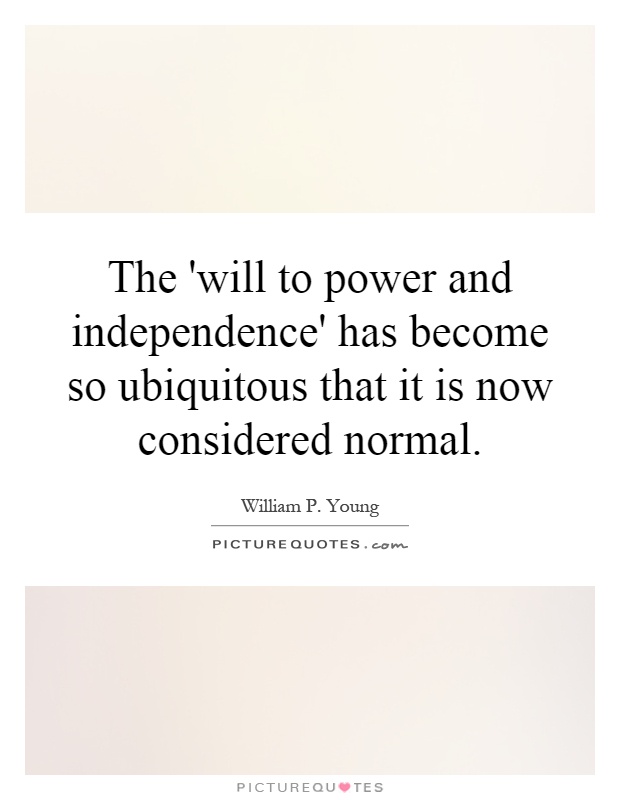The 'will to power and independence' has become so ubiquitous that it is now considered normal

The 'will to power and independence' has become so ubiquitous that it is now considered normal
William P. Young, author of the bestselling novel "The Shack," is known for his exploration of deep philosophical and spiritual themes in his work. One of the recurring themes in his writing is the idea of the "will to power and independence," which has become so ubiquitous in modern society that it is now considered normal.The concept of the "will to power" was famously introduced by the German philosopher Friedrich Nietzsche, who believed that all human behavior is driven by a desire for power and control. This idea has been echoed in various forms throughout history, from the teachings of Machiavelli to the theories of social Darwinism. In today's world, the pursuit of power and independence is often seen as a necessary and even admirable trait, with individuals encouraged to assert themselves and take control of their own destinies.
Young's work often challenges this prevailing mindset, questioning whether the relentless pursuit of power and independence truly leads to fulfillment and happiness. In "The Shack," the protagonist Mackenzie Phillips is forced to confront his own desires for control and autonomy when he is faced with a series of challenges that force him to reevaluate his priorities and beliefs.
Through his characters and their struggles, Young encourages readers to consider the consequences of prioritizing power and independence above all else. He suggests that true fulfillment and meaning can only be found through connection with others and a willingness to surrender control and embrace vulnerability.












 Friendship Quotes
Friendship Quotes Love Quotes
Love Quotes Life Quotes
Life Quotes Funny Quotes
Funny Quotes Motivational Quotes
Motivational Quotes Inspirational Quotes
Inspirational Quotes